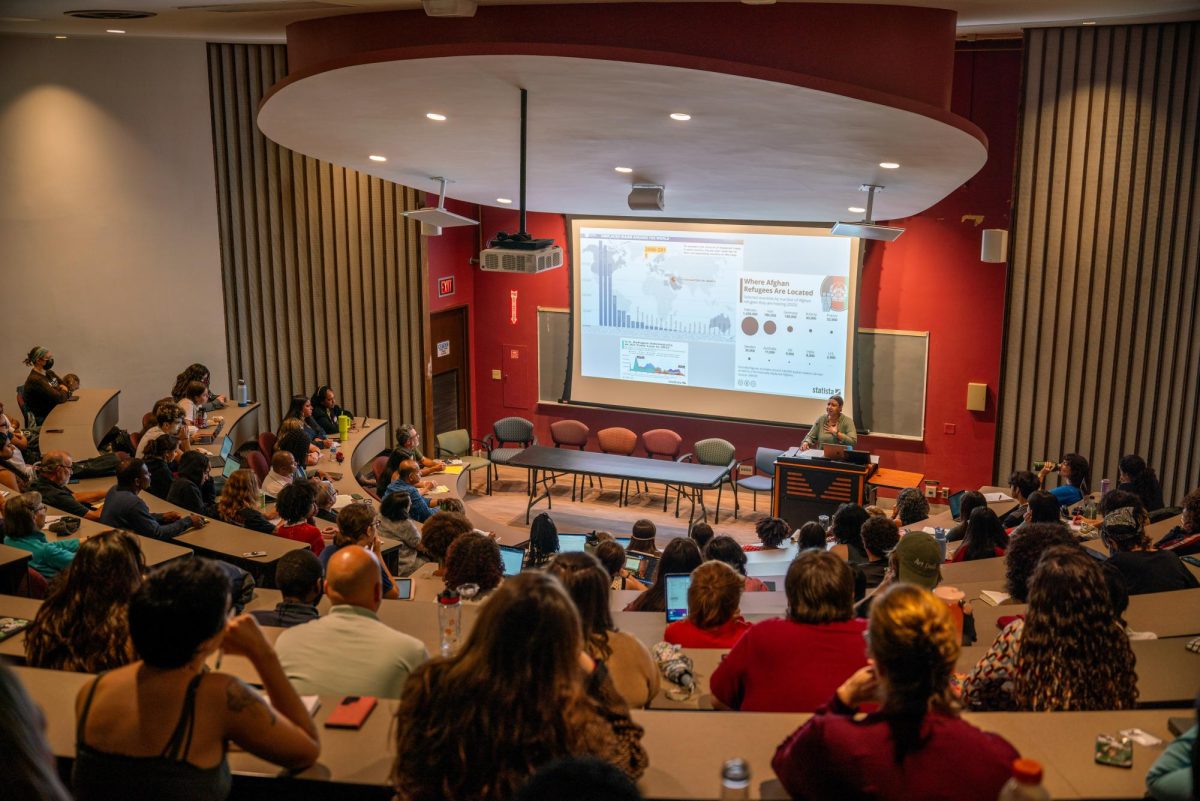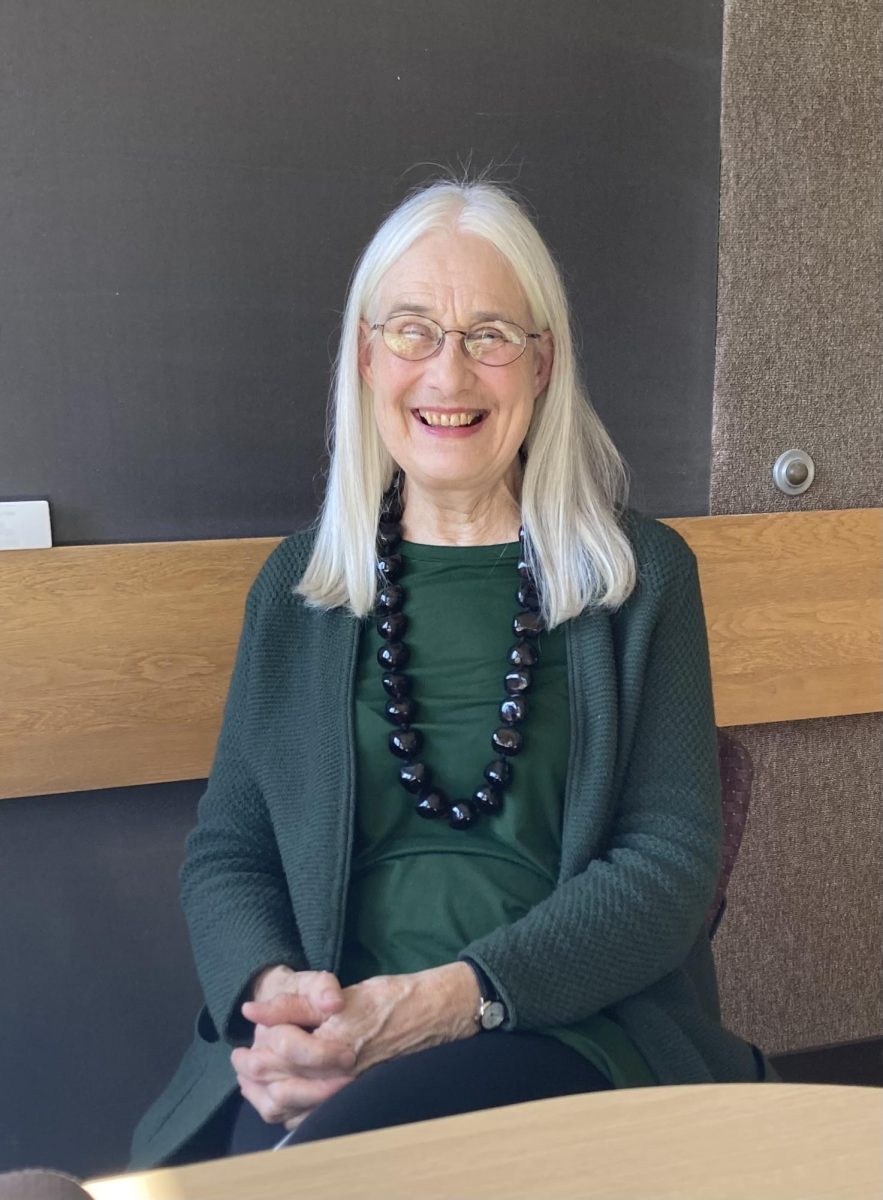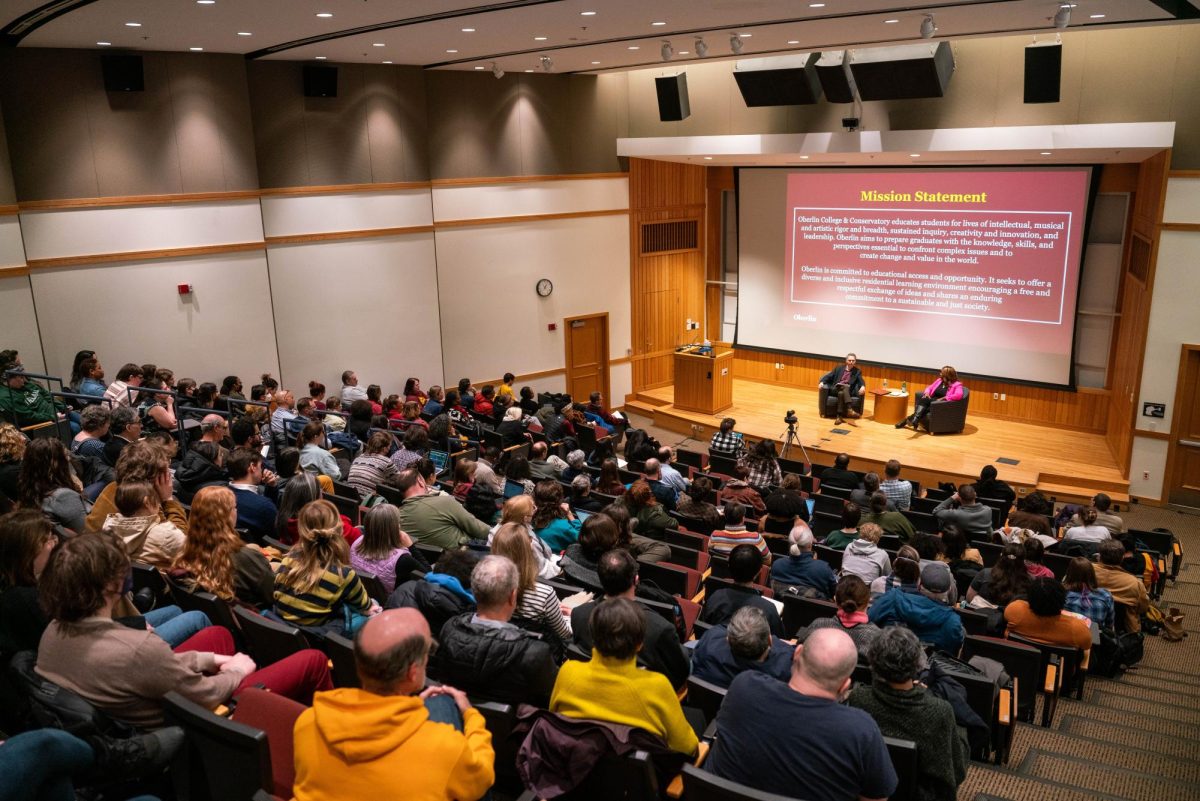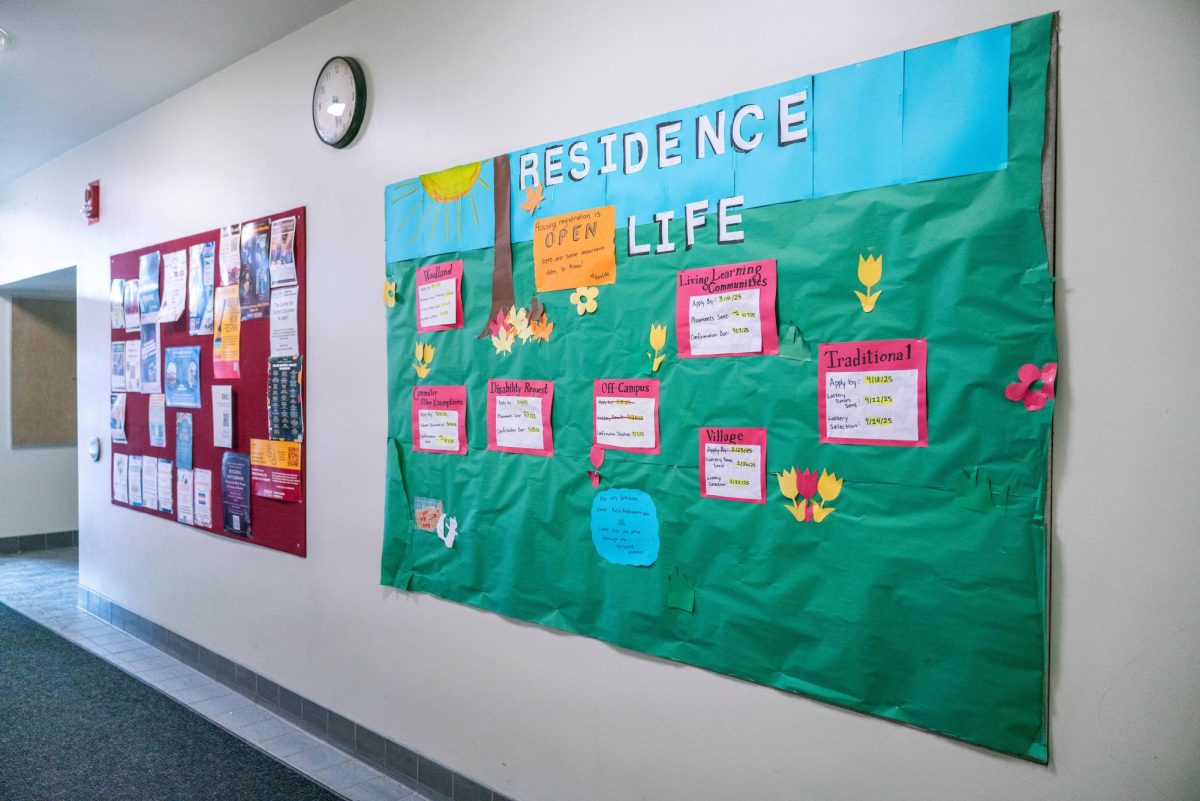On Tuesday, faculty, staff and students gathered in room 106 of King Building for a lecture titled “Immigration and the 2024 Election” to address the recent harm inflicted on Haitian immigrants in Springfield, Ohio after former President Donald Trump’s inflammatory statements during the Sept. 10 presidential debate. The event was well-attended, with faculty members choosing to stand to prioritize seating for students. A large number of staff were present from various departments, including the Dean of Students Office and Center for Student Success. Moderated by Gina Pérez, professor and chair of Comparative American Studies, and Meredith Gadsby, associate professor and chair of Africana Studies.
“You look at Springfield, Ohio, … they’re taking over the towns,” Trump remarked. “They’re eating the dogs. They’re eating the cats. They’re eating the pets of the people that live there.”
Since then, the Springfield Haitian community has faced increased violence and harassment, causing some colleges in the area to move to remote learning. In response, Oberlin professors organized a teach-in aimed at educating students about the harmful nature of these comments while providing historical context on immigration. The event emphasized the importance of supporting immigrant communities and addressing misinformation.
“I was invited to a Zoom meeting featuring Haitian and Haitian-American community [members] and faith leaders to discuss the situation in Springfield,” Pérez said. “When I got the invitation, I shared it with several faculty members who were interested in attending. At the time, [Associate Professor of Africana Studies and Comparative American Studies Yveline] Alexis responded, expressing how disappointing and demoralizing the new anti-Haitian rhetoric was, especially regarding Springfield. Through these and other conversations, it became clear that creating a teach-in was necessary to bring in faculty voices discussing the impact of election rhetoric on communities of color and immigrants, and to address specific concerns heightened by the election.”
Along with Alexis, faculty panelists included Assistant Professor of Comparative American Studies Carmen Merport Quiñones, Professor of History and Comparative American Studies Pablo Mitchell, Chair of Middle East & North Africa Studies Zeinab Abul-Magd, Assistant Professor of Comparative American Studies Aanchal Saraf, and Assistant Professor of Politics and Comparative American Studies Jenny Garcia. Each panelist discussed topics related to immigration and the 2024 debate, including the portrayal of immigrants in the media, the impact on Haitian communities, the Muslim and Arab immigrant vote, the importance of historical context, and the harm caused by inflammatory immigration narratives.
“I am in constant conversation with Africana Studies and Comparative American Studies professors, especially when discussing minorities and migrants,” Abul-Magd said. “We were always talking about organizing something. When Trump’s statements came out, faculty were understandably upset and angry. They said, ‘Now is the time to put together a panel that addresses the election from the perspectives of communities that feel ignored and marginalized, especially with all the racist rhetoric targeting them.’”
Each professor on the panel gave a short presentation on their topic. Alexis opened by emphasizing the importance of learning, listening, and discussing the debate’s impact on Haitian communities. She noted that the stigmatization of Haitian people existed long before the debate and urged students to reflect on how social media trivialized it as comical. She encouraged them to take time to learn and debunk the stereotypes targeting Haitian immigrants, which are often perpetuated by the media.
“I think for me, it was a way for myself to ruminate on all that was happening,” Alexis said. “Within the community of Haitians who are in the United States, there’s been such a heavy call on, ‘What should we say? How can we help? Should we engage? Should we not engage?’ But I think working on the teaching panel just gave me a space to sit with my hardcore feelings about the inflammatory remarks. So I think it was healthy for me to participate.”
After the presentations, attendees had the opportunity to ask questions, with Professor Gadsby moderating the discussions. Students were able to engage more deeply with the topics raised by the panelists, asking about the impact of the 2024 election, political factors, and seeking advice on how to better support immigrant communities both on and off campus. Other questions focused on the historical context of anti-immigration sentiment. Students also pointed out the large staff presence at the event and urged administrators to dedicate more attention to addressing the concerns of international students on campus.
“The panel was super informative and had such a beautiful lineup of professors with so much knowledge — many of whom I’ve talked to before,” College second-year Morgan Saunders said. “It really covered a lot of different aspects of how we think about immigration, especially with the Springfield incident happening so close to us. It made me reflect on how we, as students, are supposed to think about these issues as we enter the adult world. It was great to see such a good turnout, and I hope this momentum continues — no matter who wins the presidency. I’d love to see more organization on campus and meaningful solidarity, especially among students of color and other marginalized identities.”
The panel was held in the context of the upcoming elections, with a reminder that the voter registration deadline, Oct. 7, is approaching. Panelists and moderators emphasized the importance of voting for marginalized communities while also urging students to critically evaluate the candidates and their positions on immigration. The significance of making informed choices at the ballot box was underscored at the end of the panel. Additionally, voter registration forms were made available at the door during the conclusion of the teach-in.
“For me, voting is a form of activism that our ancestors fought so hard for,” Alexis said. “Voting is something that is so important. And it’s not just [who] we elect for the presidency. What’s important is that we are thinking about the [people] that we elect locally — the judges, the local senators, the city people that are also up for reelection. Also, think about what they are talking about when it comes to racism, sexism, homophobia, and more.”










